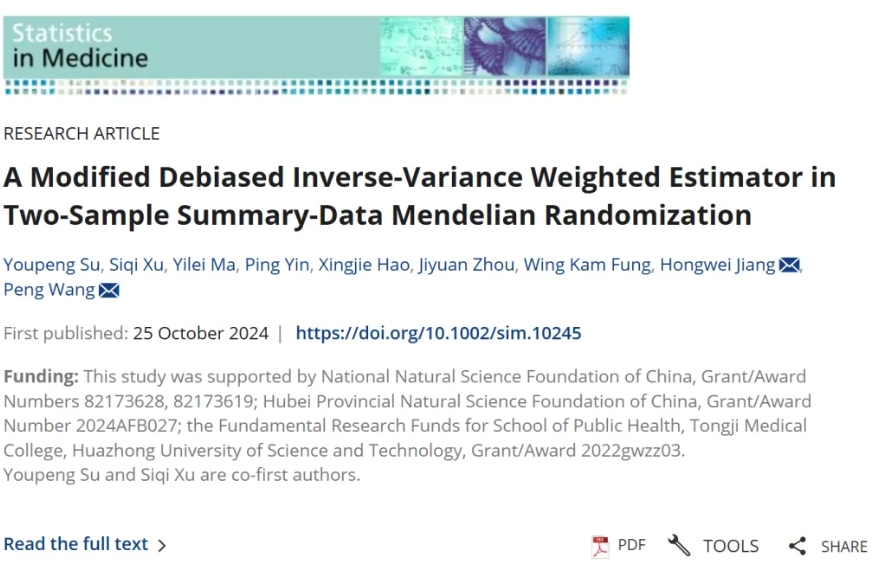On October 25, 2024, Professor YIN Ping's team with the School of Public Health at Huazhong University of Science and Technology's Tongji Medical College published an article titled "A Modified Debiased Inverse-Variance Weighted Estimator in Two-Sample Summary-Data Mendelian Randomization" online in the top journal Statistics in Medicine (https://doi.org/10.1002/sim.10245). The method is based on bias correction theory and constructs a new two-sample Mendelian Randomization (MR) analysis method by multiplying the debiased inverse-variance weighted (dIVW) estimator by a shrinkage factor. Compared to the dIVW estimator, the new strategy had smaller bias and variance and is more robust in extremely weak instrument variable scenarios.

MR uses genetic variations as instrumental variables to infer causal relationships between exposures and outcomes. Unlike conventional instrumental variable analysis, a notable feature of MR studies is the presence of a large number of genetic variants with weak associations with exposures in GWAS, also econometrically known as many weak instruments. Multiple traditional MR methods, such as the IVW method, introduce weak instrument bias in such circumstances.
To address this issue, the recently proposed dIVW and penalized IVW (pIVW) estimators both exhibited better robustness to weak instruments. However, the team found that the former tends to overestimate the causal effect, while the latter is more complex and lacks an intuitive explanation. Therefore, the team proposed the modified dIVW (mdIVW) method, which corrected bias by multiplying the dIVW estimator by a shrinkage factor. They confirmed that the bias of the mdIVW estimator was only of the second order and had the smallest variance. Compared to the pIVW estimator, although both have the same order of bias, the mdIVW estimator had a simpler form and followed clearer principles. Moreover, the relative bias of the mdIVW estimator is always negative, which also helps to avoid false positive results.
On the strength of theoretical derivation, numerical simulation, and case analysis, the study demonstrated taht the new method outperformed previous ones in terms of bias and variance indicators, thus providing a more robust and efficient option for two-sample MR studies.
